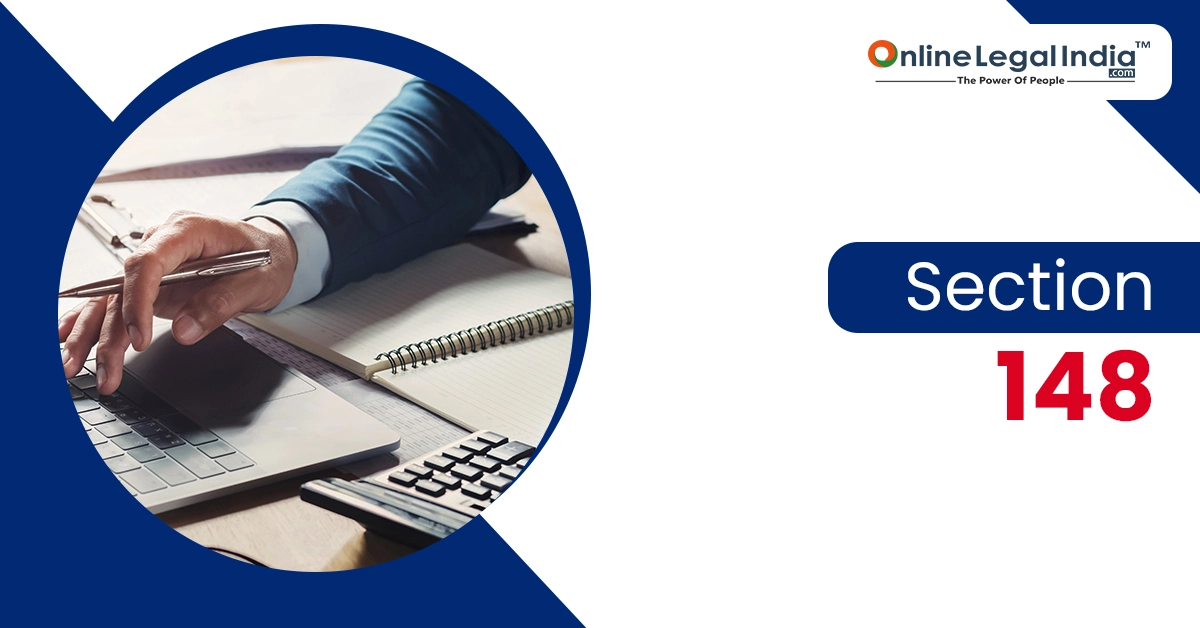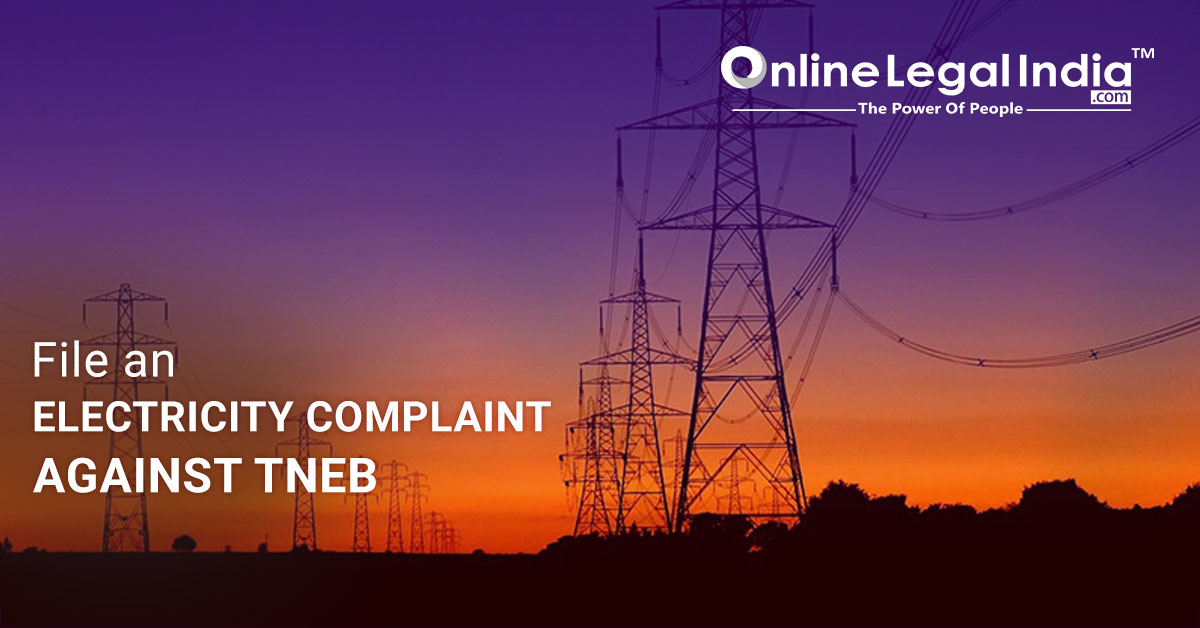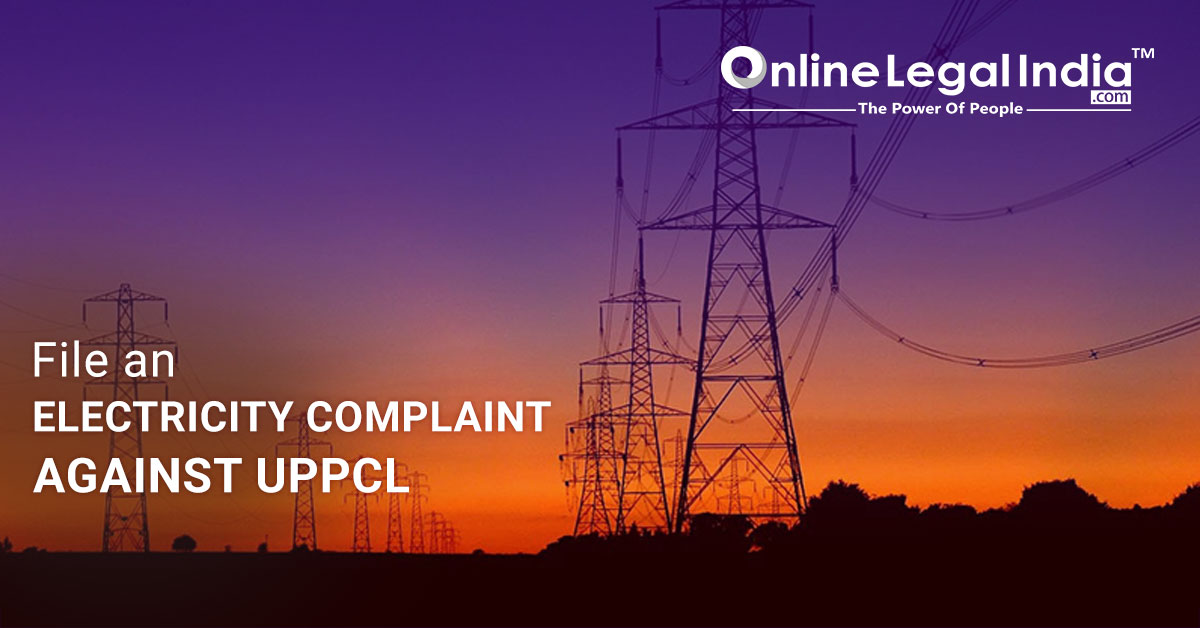Know the Cost to trademark a name and all the fees required
23 Apr, 2024

 By Online Legal India
Published On 07 Dec 2022
Updated On 06 Jan 2023
Category Legal
By Online Legal India
Published On 07 Dec 2022
Updated On 06 Jan 2023
Category Legal
The Income Tax Department possesses the right to review an individual's formerly filed income tax returns as per Sec 147 of the Income Tax Act of 1961. By delivering a notice under Sec 148 for Income Escaping Assessment, the Assessing Officer may choose the income tax return for reassessment based on specific pre-defined criteria.
If the assessing officer feels that an individual's income is liable to tax has eluded assessment, the assessing officer may provide notice under section 148.
If the evidence supporting his opinion is available, the AO would write out his reasons and give the subject a notice under Section 148. With a sufficient explanation, the evaluating officer can alter his decision and request a re-investigation.
If the assessee supplied all of the documents and proper information during the initial assessment, the Assessing Officer couldn't give the assessee a notice to reassess the same papers. Some information or fresh papers demonstrating that the income has eluded assessment should be made public.
If fresh information or documents emerge suggesting that the person has hidden income, the AO may take action against such assessee under sections 147 & 148.
Section 151(1) of the IT Act includes the provisions for the issuance of notice:
After 4 years from the expiry of the relevant AY (assessment year), no notice would be provided by an Assessing Officer under section 148 unless the Principal Commissioner or Principal Chief Commissioner or Chief Commissioner or Commissioner is satisfied, for reasons recorded by the AO, that it is a fit case for issuing such notice.
In cases other than the mentioned above, no notice would be served by an Assessing Officer as per section 148, where the AO is below the position of a Joint Commissioner unless the Joint Commissioner is satisfied, on the basis of reasons recorded by such AO, that the case is fit for issuing such notice.
For the purposes of paragraphs (1) & (2), the Principal Commissioner or the Chief Commissioner or the Principal Chief Commissioner or the Joint Commissioner, depending on the case, who is satisfied on the basis of reasons recorded by AO about the suitability of the case for serving notice undersection 148of the Income Tax Act, does not need to issue the notice himself.
Section 149 of the Income Tax Act states that a notice under section 148 may be given within four years of the end of the relevant AY (assessment year) if the income so evaded does not exceed INR one lakh.
If the income so evaded exceeds INR one lac, a notice under section 151 may be issued within 6 years of the end of the relevant AY, subject to the requirements of section 151.
If the income that has avoided assessment pertains to assets located outside India, the notice under section 148 might be made within 16 years of the end of the relevant AY
Furthermore, suppose the assessment has been finished under section 143(3) or 147. In that case, no further action under section 147 could be taken after 4 years from the expiry of the relevant AY unless income chargeable to tax escaped assessment for such AY due to the assessee's failure to file the return as per sections 139, 142, or 148 or fully & fully revealing all the material information required for the assessment, for that AY.
The critical point to remember is not to consider the notification lightly. For example, if you get a notification under Section 148, follow the instructions below:
First, review the notice for reasons to suspect that the assessing officer documented when serving the notice as per section 148. If the reasons aren't included in the notice, you can ask the assessing officer to provide you with a copy of the documented reasons.
If you are satisfied with the grounds to believe documented by the assessing officer, file the return as soon as possible. Send a copy of the case previously submitted to the assessing officer.
If you submit an income tax return in reply to a notification under Section 148, make sure you do your due diligence and correctly disclose all of your income and expenses. If you fail to record any of your earnings appropriately, you may face needless fines.
Suppose you feel that notice was not properly served or that the grounds supplied by the assessing officer for commencing assessment under section 147 are incorrect. In that case, you may contest the legitimacy of such notice before the assessing official or higher officials.
If you prevail in the case, the Court will put an end to your assessment processes. However, if the judgement is not in your favour, the assessing officer may continue with the reassessment.
1.This order will affect over 90,000 assesses for the first time in the Income Tax Department's history.
2.The taxes involved in these 90,000 notifications total thousands of crores.
3.This decision primarily concerns notices pertaining to Assessment Years ranging from 2013-14 to 2017-18.
4.It has takeaways for both the Assessee and the Revenue.
Revenue has filed a petition with the Supreme Court against a High Court ruling that dismissed multiple reassessment letters issued under old Section 148 rules. The notifications were dismissed on the grounds that they were unconstitutional under the Finance Act of 2021.
The Supreme Court ruled that the respective High Courts were correct in holding that the benefit of new provisions would be accessible if a reassessment notice under Section 148 were given on or after April 1, 2021. The Supreme Court completely agrees with the several High Courts in reaching this conclusion.
The Court further ruled that these rulings would not result in any reassessment procedures. As a result, some wiggle room must be provided, which the High Courts may have done.
Supposedly, the Apex Court has proposed to alter the orders and judgments passed by the respective High Courts as under
The aforesaid ruling shall apply to all instances, whether pending before the Apex Court or not, in which a notice under Sec. 148 of the former statute was issued between 1-4-2021 and 30-6-2021.
The Income Tax Department has the authority to assess the income of a person who has previously submitted tax returns u/s 147 of the IT Act 1961.
The Assessing Officer may select the tax return for reassessment. It will be done in accordance with predetermined rules through email under Section 148, a provision for income-exempt assessment.

Know the Cost to trademark a name and all the fees required
23 Apr, 2024

How to Register a Brand Name
17 Apr, 2024

How Can You Download FSSAI Certificate?
15 Apr, 2024

Copyright a Business Name Know the Procedure
13 Apr, 2024

Top 10 Law Firms in India
11 Apr, 2024

Consumer Complaint against Tamil Nadu Electricity Board TNEB
30 Nov, 2020

How to Take Legal Action against Mental Harassment in India?
07 Nov, 2020

UPPCL Uttar Pradesh Power Corporation Ltd. Complaint Filing
19 Nov, 2020

How to File a Complaint Online in Consumer Court in India
27 Nov, 2020

Online Complaint Filing against Hero Motocorp
04 Dec, 2020